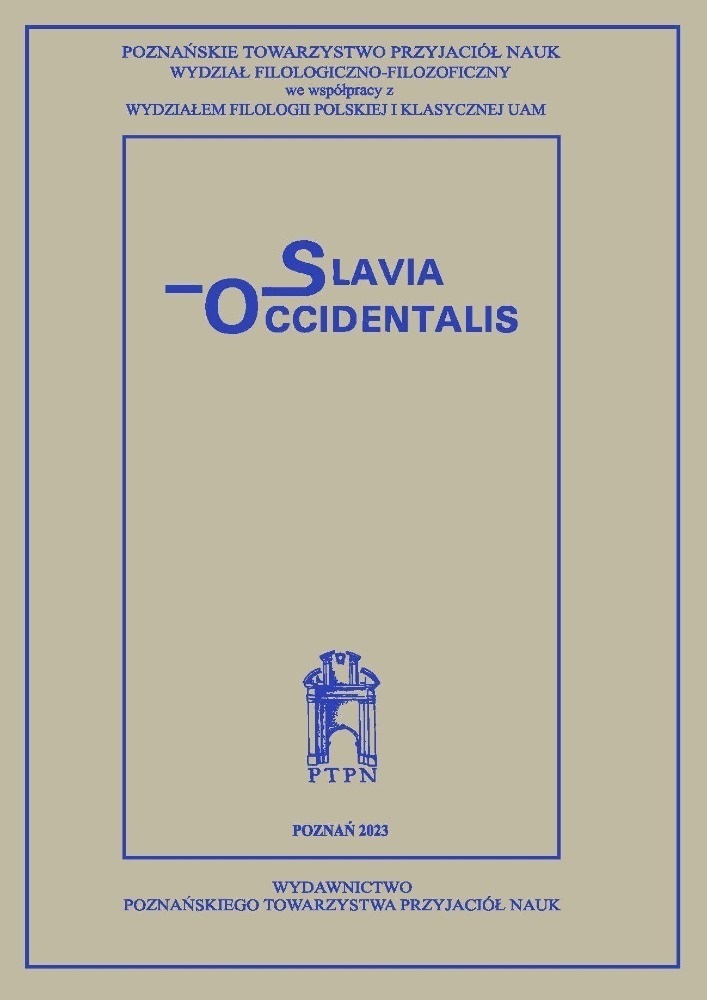Abstrakt
The essay tends to illuminate a series of rhetorical operations, presented and commented in the literary works of Milan Kundera, in order to discuss their performative activity, conjoined with their important participation in the textual structure. According to the author of L’art du roman, a figure of metaphor seems to be at the forefront in the privileged realm of novel, however, its phenomenological character demands to be put in question since the aforementioned figure confronts an ironic necessity regarding the apophantic essence of writing. Thus the negative work of irony manages to destabilize the phenomenological or existential metaphor that is consequently perceived in the opposition to the ornament metaphor, which is to determine the poetic imagination. Furthermore, Kundera’s irony also results in a significant involvement of the set of subsequent rhetorical devices, and among of them an extra-ordinary event of ellipsis should be taken into consideration for it perfectly renders the idyllic desire of (a) non-presence, manifested or illustrated by the case of Agnes in Immortality. Kundera’s texts, reread in the intertextual perspective, partly indicated by the writer himself, partly revealed as the essay’s intention, establish therefore an unlimited possibility of interpretation, possibility that has to remain a sequence of attempts, streaked with the art of misreading.
Bibliografia
Arendt H., 2000, Kondycja ludzka, przeł. A. Łagodzka, Wydawnictwo Aletheia, Warszawa.
Bieńczyk M., 2012, Książka twarzy, Świat Książki, Warszawa.
Bloom H., 1991, Ruin the Sacred Truths. Poetry and Belief from the Bible to the Present, Harvard University Press, Cambridge, Massachusetts, London.
Cixous H., 1989, The Scene of the Unconsious, [w:] The Future of Literary Theory, ed. by R. Cohen, Routledge, London, New York.
Hvížd’ala K., 2008, Restaurování slov (eseje a texty o médích 2005–2007), Portál, Praha.
Kafka F., 1993, Zamek, tłum. K. Radziwiłł, K. Truchanowski, Alma-Press, Warszawa.
Kafka F., 2000, The Diaries 1910–1923, ed. by M. Brod, trans. by J. Kresh (The Diaries of Franz Kafka 1910–1913), M. Greenberg, H. Arendt (The Diaries of Franz Kafka 1914–1923), Schocken Books, New York.
Kafka F., 2006, The Zürau Aphorisms, with an Introduction and Afterword by R. Calasso, trans. from the German by M. Hofmann, R. Calassso’s commentary trans. from the Italian by G. Brock, Harvill Secker, London.
Kundera M., 1993, Księga śmiechu i zapomnienia, przeł. P. Godlewski, A. Jagodziński, Państwowy Instytut wydawniczy, Warszawa.
Kundera M., 1995, Nieśmiertelność, przeł. M. Bieńczyk, Państwowy Instytut wydawniczy, Warszawa.
Kundera M., 1996, Nieznośna lekkość bytu, przeł. A. Holland, Państwowy Instytut Wydawniczy, Warszawa.
Kundera M., 1996, Zdradzone testamenty. Esej, z francuskiego przeł. M. Bieńczyk, Państwowy Instytut Wydawniczy, Warszawa.
Kundera M., 2002, Życie jest gdzie indziej, przeł. J. Illg, Państwowy Instytut Wydawniczy, warszawa.
Kundera M., 2006, Sztuka powieści. Esej, wydanie II zmienione, przeł. M. Bieńczyk, Państwowy Instytut Wydawniczy, Warszawa.
Kundera M., 2008, Śmieszne miłości, przeł. E. Witwicka, Państwowy Instytut Wydawniczy, Warszawa.
Marqard O., 1994, Apologia przypadkowości. Studia filozoficzne, przeł. K. Krzemieniowa, Oficyna Naukowa, Warszawa.
Milton J., 2006, Raj utracony, tłum. M. Słomczyński, Wydawnictwo Zielona Sowa, Kraków.
Lévinas E., 2000, Inaczej niż być lub ponad istotą, przeł. P. Mrówczyński, Wydawnictwo Aletheia, Warszawa.
Patočka J ., 1 996, Heretical Essays in the Philosophy of History, trans. by E. Kohák, ed. by J. Dodd, with P. Ricoeur’s Preface to the French edition, Open Court, Chicago and La Salle, Illinois.
Szymborska W., 1996, Widok z ziarnkiem piasku, Wydawnictwo a5, Poznań.
Licencja
Prawa autorskie (c) 2014 Anna Maria Skibska

Utwór dostępny jest na licencji Creative Commons Uznanie autorstwa – Użycie niekomercyjne – Bez utworów zależnych 4.0 Międzynarodowe.
